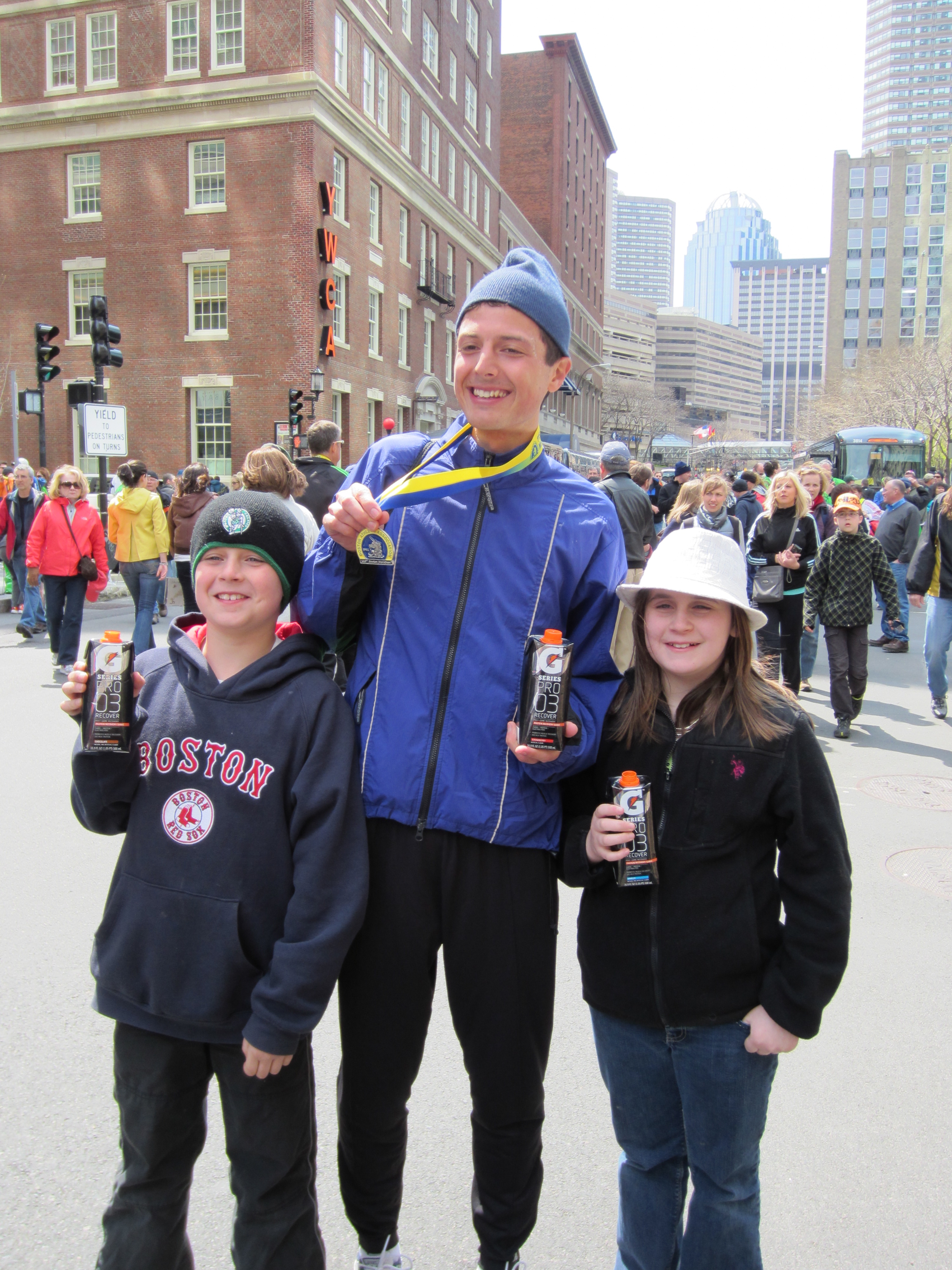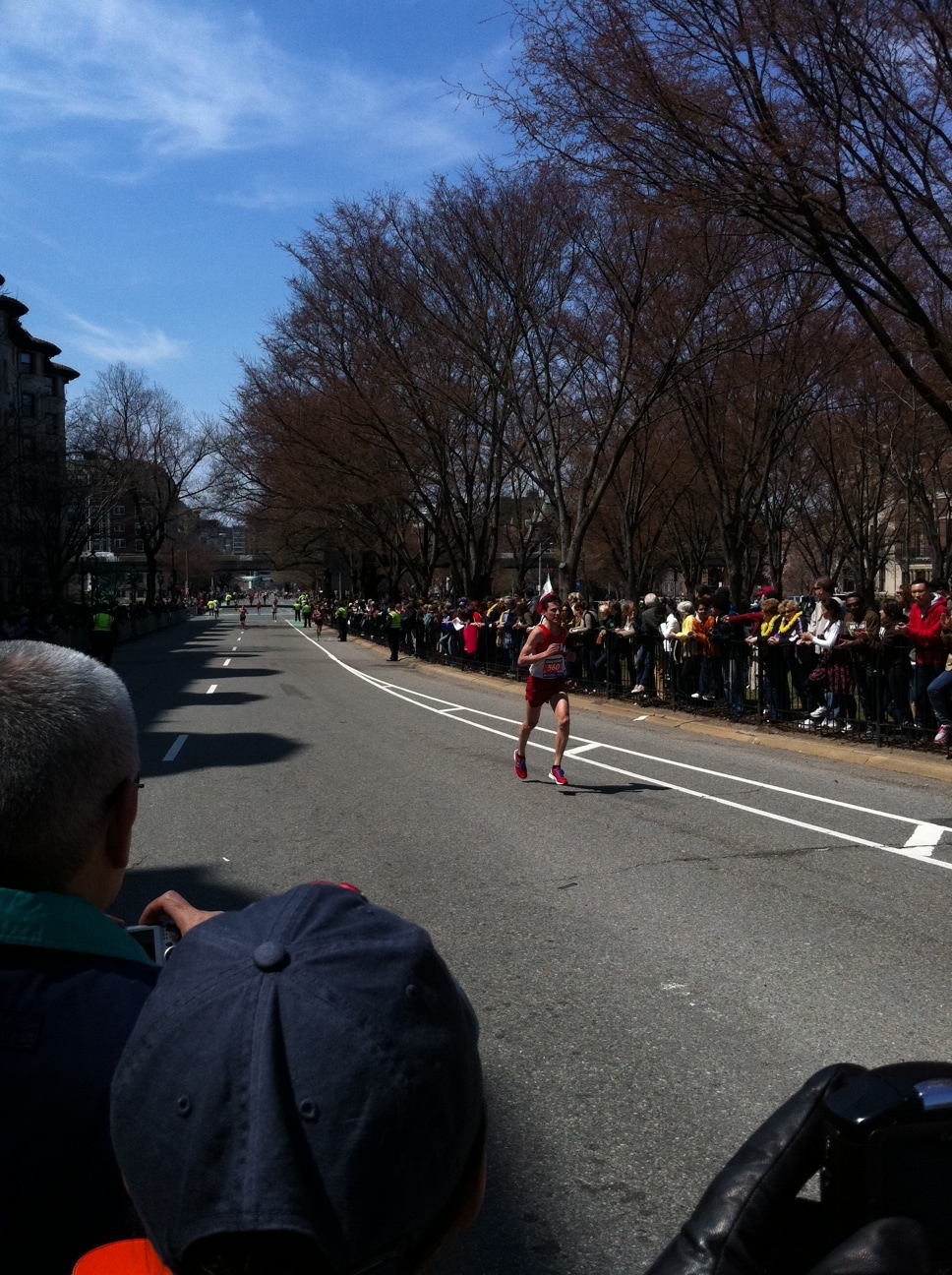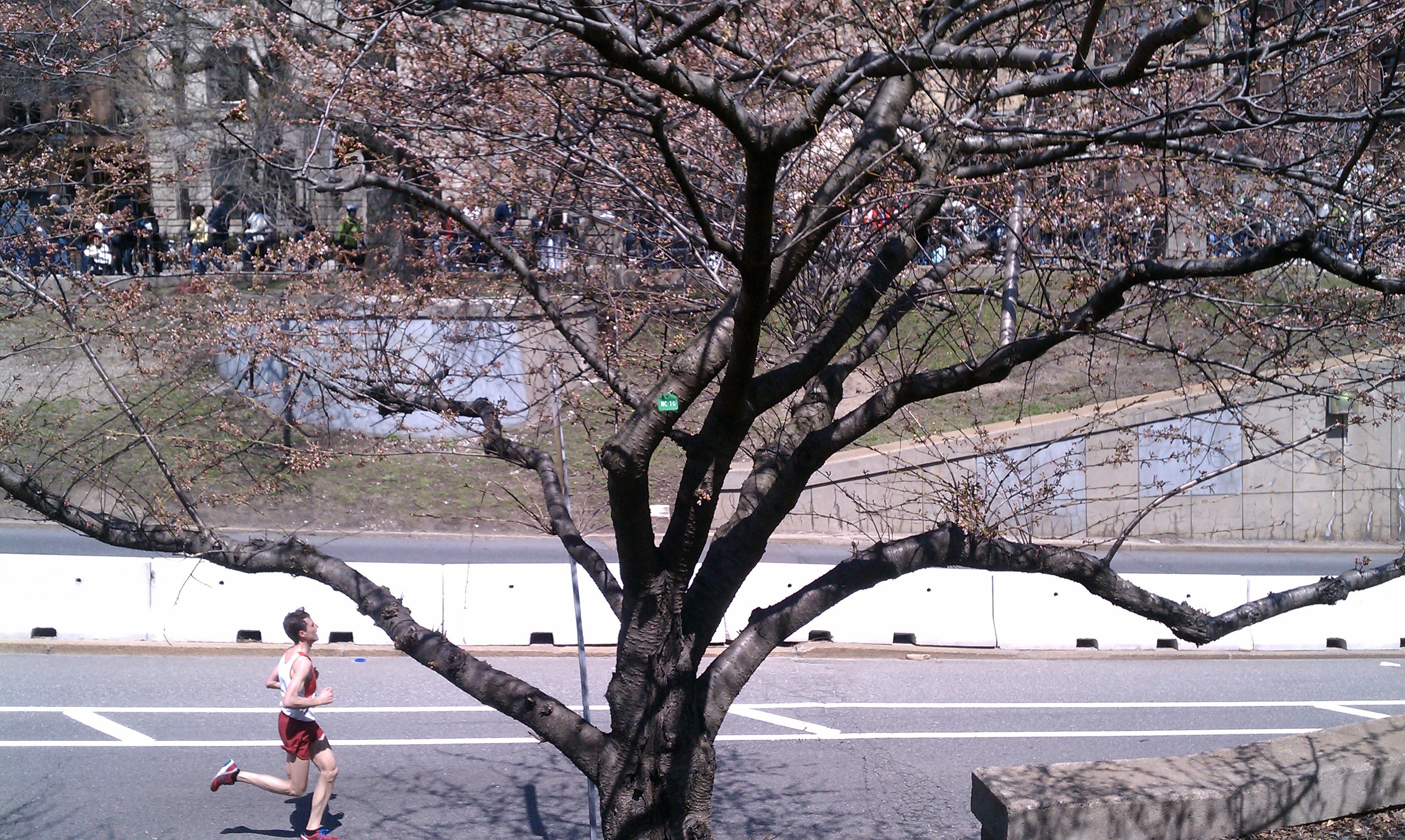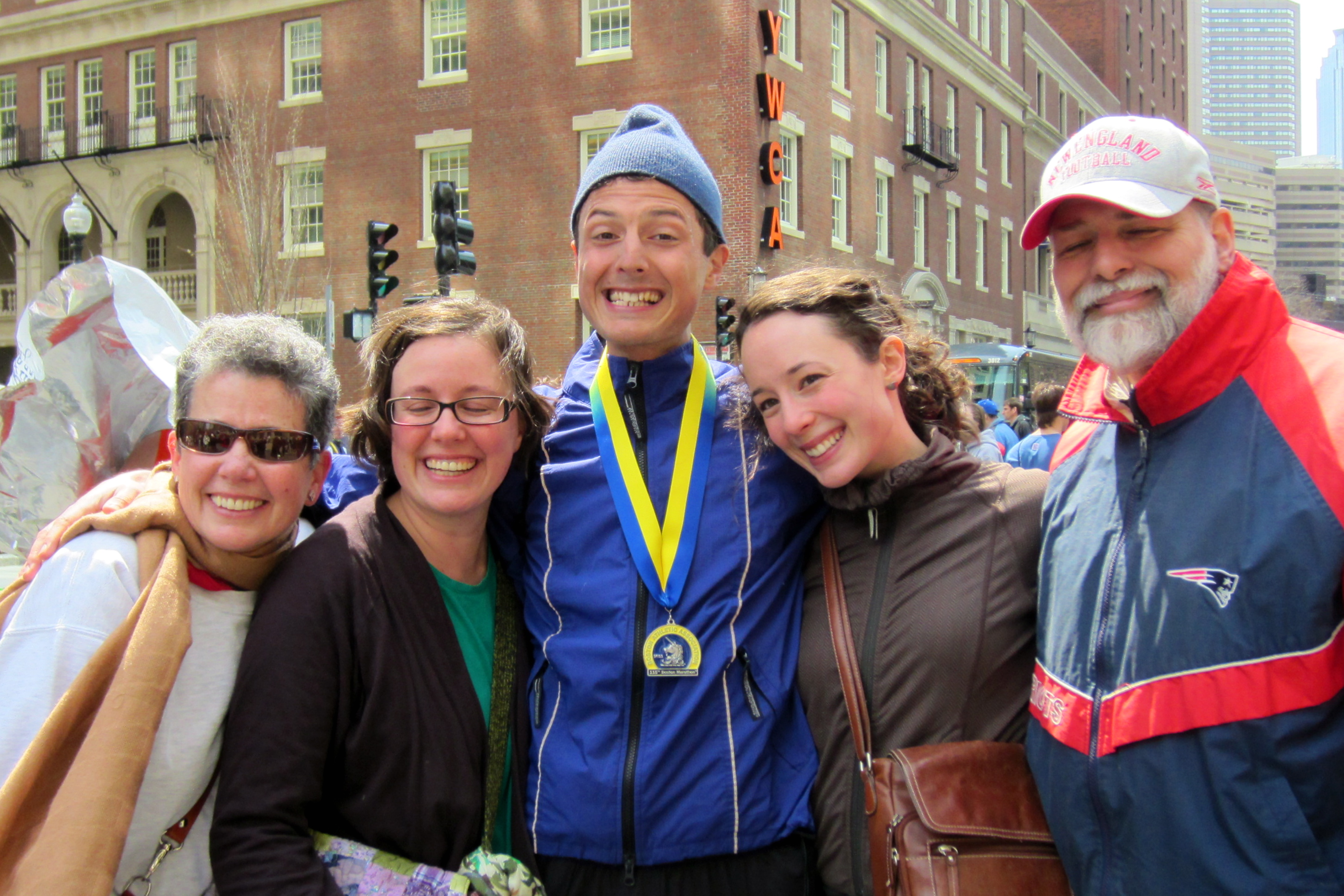The gun fired in Hopkinton at 10 a.m. I’d been up since 5:45 a.m. That’s because I, along with 24,000 other runners, had to show up at the Boston Common early that morning (I pedaled my bicycle there) and load onto one of thousands of buses carrying us all 26.2 miles outside the Massachusetts capital to the starting line of the 2011 Boston Marathon. It was breezy and chilly, and we all sat shivering in an open field outside Hopkinton High School, waiting two hours before finally walking another mile to the starting line and pausing for the gun’s crack.
This was my first Boston Marathon, following up on my first-ever official marathon last fall. As many long distance runners will say, running Boston is a dream and a goal. For me, having not raced since college eight years ago, I was thrilled with nearly breaking into the top 100 finishers, placing 117th overall with a time of 2:32:14—15 minutes faster than my previous best.
It was a fast day for everybody, in fact. A strong tailwind propelled the leaders to world record times. Geoffrey Muttai of Kenya took the cake with 2:03:02, although the International Association of Athletics Federations (IAAF) did not recognize it as a new world record because the course is not a loop (a rule meant to minimize the affect of tailwinds) and it also exceeds IAAF downhill regulations for having an overall elevation drop of 459 feet. The Boston Globe argued why Muttai’s time should have qualified for a new record:
But neither of those measures takes into account the actual difficulty of the Boston course, whose twists, turns, ups, and downs make it far tougher than any flat, circular course could be. Runners almost universally consider Boston the toughest of the world’s five major marathons. New York, London, Berlin, and pancake-flat Chicago have nothing to compete with the steep inclines of Newton, culminating in the most humbling ascent of all the majors, Heartbreak Hill. Those hills are most likely the reason that Boston, for all its history, has not seen a world record in the men’s race since 1947, when Korean Suh Yun-bok won in 2:25:39.
 The BAA petitioned the IAAF, but the regulatory body refused to budge. I don’t think the IAAF’s stubbornness will keep runners from coming to Boston. Despite the pain of taking the bus out to Hopkinton and shivering in an open field for two hours, it was a great experience for me and my family. The crowds are amazingly loud and supportive the entire way, the downtown finish line is packed with spectators, and the volunteers are cheery and helpful.
The BAA petitioned the IAAF, but the regulatory body refused to budge. I don’t think the IAAF’s stubbornness will keep runners from coming to Boston. Despite the pain of taking the bus out to Hopkinton and shivering in an open field for two hours, it was a great experience for me and my family. The crowds are amazingly loud and supportive the entire way, the downtown finish line is packed with spectators, and the volunteers are cheery and helpful.
Ryan Hall, the top American finisher, said it well afterward: “I was just having a good time. I was just enjoying the streets, enjoying running through all the neighborhoods, enjoying the crowds.
“I love Boston. I think I should move here. I feel like a hometown boy here.’’
Hall placed fourth overall and set a new American marathon record of 2:04:58. It was the second year in a row that the Californian broke the previous course record, only to have three Africans beat it by just a little more.
“For some reason, whenever I break through, I’m in a race of people who are all breaking through as well,” he told The Boston Globe. “One of these times, I’m going to break through when everyone else is having an off day, and come away with the victory.’’
Hall is right to see Boston as an enjoyable place to live. It doesn’t offer the high-altitude training of Mammoth Lakes, California, but especially in the spring it’s a beautiful collection of diverse neighborhoods all rooting for the Celtics, Bruins, Red Sox, and marathoners. Running Boston was a great farewell to the city. After living here for about 1-1/2 years, I’m leaving The Christian Science Monitor and moving back to New York City for a new job in a financial journalism.



